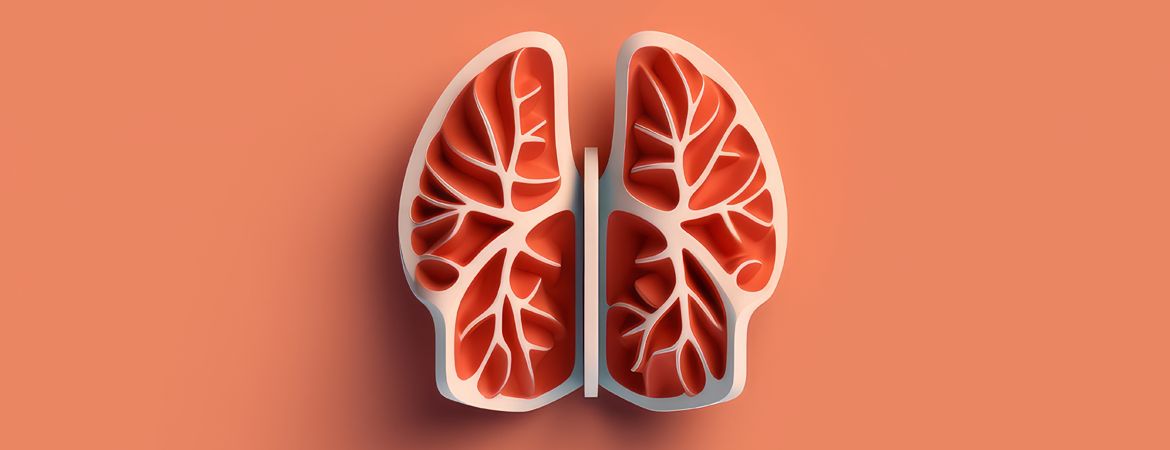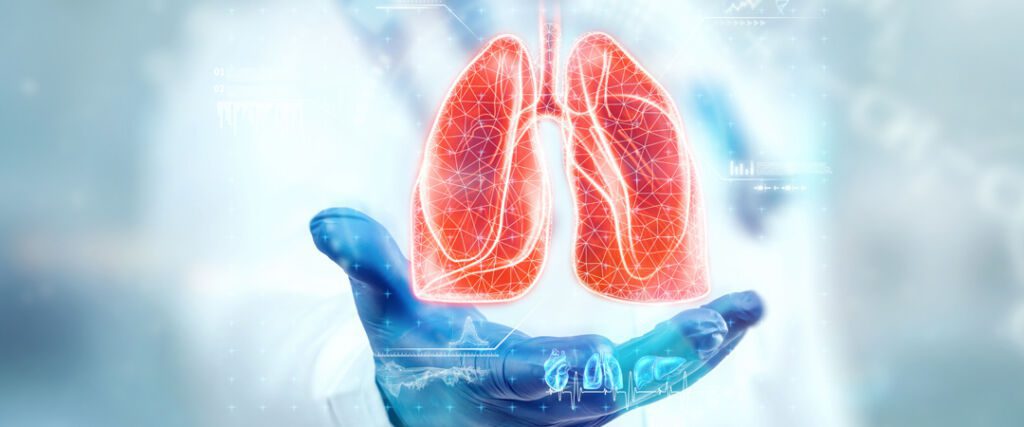
Thanks to the latest advances in pulmonology, our breath is coming back to life. Modern pulmonology offers innovative solutions to improve our breathing capacity and general well-being. In this article, we explore the latest technologies and treatments that have revolutionised the field of pulmonology.
Thanks to medical research and technological advances, patients suffering from respiratory diseases such as asthma, chronic bronchitis and pulmonary fibrosis can now benefit from better diagnosis and more effective treatment. Advanced medical devices, such as ventilators and smart inhalers, enable patients to monitor their condition and manage their symptoms more proactively.
Modern pulmonology also relies on personalised treatments based on genetic data and specific biomarkers. This makes it possible to better target the underlying causes of each respiratory disease and tailor therapies accordingly.
Thanks to these advances, patients with respiratory diseases can now look forward to a better quality of life, with improved breathing and more effective management of their symptoms. Join us to learn about the latest advances in respiratory medicine and how we can improve our breathing and overall health.
UNDERSTANDING COMMON RESPIRATORY CONDITIONS AND HOW THEY AFFECT BREATHING
Common respiratory diseases such as asthma, chronic bronchitis and pulmonary fibrosis have a significant impact on our ability to breathe properly. These conditions can cause breathing difficulties, persistent coughing and reduced lung capacity. Understanding these conditions is essential if we are to manage them effectively and improve our breathing.

Asthma:
Asthma is a chronic lung disease in which the airways – the tubes that carry oxygen from the lungs to the bloodstream – become inflamed and narrowed. When this happens, you may have difficulty breathing and feel tightness in your chest or throat. This can happen when you exercise or when you are exposed to something that bothers you, such as pollen or animal hair. Some people also develop asthma when they take certain medicines (such as aspirin).
There are two types of asthma:
Chronic: frequent or continuous symptoms that last for months or years.
Acute: when symptoms are triggered by factors such as pollen season, cold air or exercise and usually go away quickly.
Chronic bronchitis:
Chronic bronchitis is a chronic inflammation of the airways in the lungs that causes coughing and mucus production.
Chronic bronchitis is also known as chronic obstructive pulmonary disease (COPD). In fact, the term COPD is used to describe both chronic bronchitis and emphysema.
Causes of chronic bronchitis:
The most common cause of chronic bronchitis is smoking. It can also occur in people who breathe polluted air or who have asthma or other lung diseases that affect the airways.
Symptoms of chronic bronchitis:
The symptoms of chronic bronchitis are:
- A chronic cough accompanied by mucus production, especially at night when you are resting;
- Breathlessness and/or wheezing (whistling when you breathe).
Pulmonary fibrosis:
Pulmonary fibrosis is a disease that causes scarring of the lungs. It makes breathing difficult and can lead to potentially fatal complications such as blood clots or infections.
Pulmonary fibrosis usually has no known cause. Some types of pulmonary fibrosis are associated with certain diseases, such as scleroderma or lupus.
There is no cure for pulmonary fibrosis, but treatment can help manage symptoms and improve quality of life. Treatment will depend on your symptoms, age and overall health.
Treatment may include:
- Blood-thinning medicines (anticoagulants) to reduce the risk of blood clots forming in the lungs.
- Medications to treat symptoms, including painkillers, antibiotics for infections and oxygen therapy for breathlessness.
- The latest diagnostic tools in pulmonology for accurate diagnosis.
Thanks to advances in technology, doctors now have advanced diagnostic tools to accurately identify respiratory problems. High-resolution lung scans can show lung abnormalities with great precision, while pulmonary function tests assess the ability of the lungs to breathe in and out efficiently. These advanced diagnostic tools facilitate accurate diagnoses so that appropriate treatment can be initiated quickly.

INNOVATIONS IN RESPIRATORY CARE
Treatments for respiratory diseases have evolved significantly in recent years. Innovative medicines, such as inhaled corticosteroids and long-acting bronchodilators, help reduce inflammation and open the airways to improve breathing. In addition, new targeted therapies, based on genetic data and specific biomarkers, make it possible to tailor treatments to the underlying causes of each respiratory disease. This greatly improves the effectiveness of treatments and the outcomes for patients.
THE ROLE OF TECHNOLOGY IN IMPROVING RESPIRATORY CARE
Technology has a key role to play in improving respiratory care. Advanced medical devices, such as ventilators and smart inhalers, allow patients to monitor their respiratory status and proactively manage their symptoms. These devices record respiratory data, oxygen levels and lung volumes, giving clinicians a detailed picture of a patient’s respiratory health. In addition, mobile applications and telemedicine devices allow patients to easily communicate with their doctors and receive advice and treatment adjustments remotely.
LIFESTYLE CHANGES AND SELF-MANAGEMENT STRATEGIES TO IMPROVE BREATHING
In addition to medical treatments, lifestyle changes and self-management strategies can help improve breathing. Maintaining a healthy weight, exercising regularly and avoiding exposure to allergens or irritants can reduce respiratory symptoms and improve lung capacity. Relaxation techniques such as deep breathing and meditation can also help reduce stress and improve breathing.
PROMISING RESEARCH AND BREAKTHROUGHS IN RESPIRATORY MEDICINE
Respiratory research is advancing rapidly, paving the way for new breakthroughs and more effective treatments. New gene therapies are being developed that offer the possibility of directly treating the genetic causes of respiratory disease. In addition, stem cell research shows great potential for regenerating damaged lung tissue and restoring lung function. These promising advances offer hope to patients with chronic respiratory diseases.
THE IMPORTANCE OF REGULAR CHECK-UPS AND PREVENTIVE MEASURES FOR RESPIRATORY HEALTH
It is important to see a lung specialist regularly and to have regular check-ups to detect any abnormalities early on. Early detection means that treatment can be started quickly and potential complications can be prevented. What’s more, preventive measures such as flu vaccinations and protection against air pollution can reduce the risk of developing respiratory problems.
EXPERT ADVICE AND RESOURCES FOR PEOPLE WITH RESPIRATORY PROBLEMS
As a person with respiratory problems, it is important to keep abreast of the latest advances in pulmonology and to find reliable resources for managing your respiratory health. Patient organisations, online forums and specialist websites can provide valuable information and community support. It is also advisable to see a respirologist regularly for personalised advice and appropriate medical follow-up.
CONCLUSION: EMPHASISES THE IMPORTANCE OF REMAINING INFORMED AND PROACTIVE IN THE MANAGEMENT OF RESPIRATORY HEALTH.
Modern pulmonology offers great hope for people with respiratory disease. Thanks to the latest advances in diagnosis, treatment and technology, it is possible to significantly improve patients’ breathing and quality of life. However, it is important to stay informed, take preventative measures and see a lung specialist regularly for effective respiratory health management. Together, we can breathe easier and live healthier lives.

